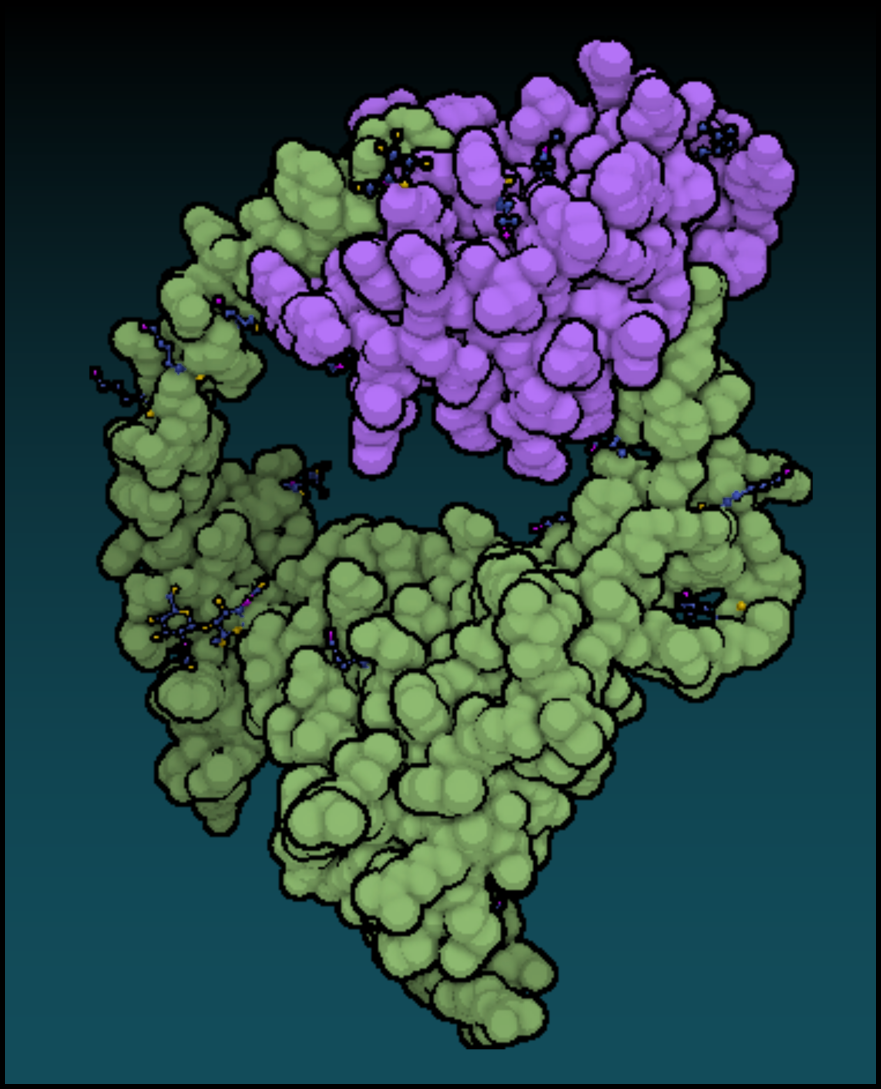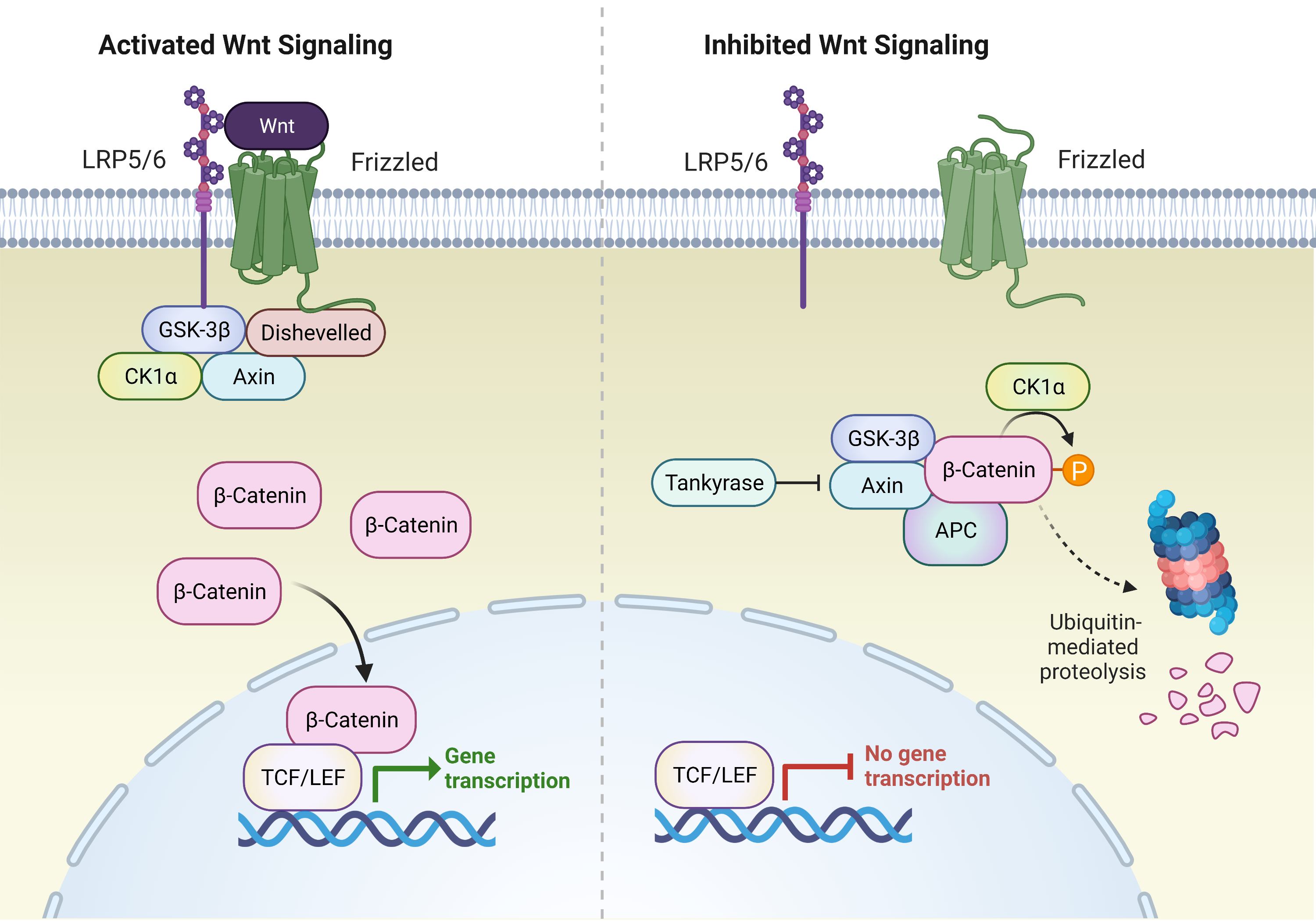Wnt Signaling Pathway
 |
A 3-D model rendering of Wnt-3 (purple) binding to Frizzled-8 (green) (PDB ID: 6AHY). |
Wnt proteins are a family of secreted glycoproteins that are essential for organogenesis, tissue regeneration, and cell growth. They bind to Frizzled receptors and/or LDL receptor proteins on cells and initiate signaling pathways that regulate cell proliferation and embryonic development. In neuronal development, they regulate processes such as axon guidance and synaptic assembly. Dysregulation of the critical Wnt pathway can lead to various diseases including cancer.
In the absence of Wnt, several proteins, including GSK-3β, Axin, and APC, complex with intracellular β-catenin, initiating phosphorylation by CK1α. This drives ubiquitination of β-catenin, leading to its degradation via the proteasome. When the Frizzled receptor is activated by Wnt, Dishevelled (DVL) becomes phosphorylated and is recruited to the receptor. Upon this activation, the GSK-3β/Axin/CK1α complex is disrupted and no longer interacts with β-catenin, allowing its accumulation in the cytoplasm and subsequent translocation into the nucleus. Upon entering the nucleus, β-catenin forms a complex with several proteins including BCL9, Pygopus, CBP, and LEF/TCF proteins, initiating transcription of target genes, such as c-Myc, Cyclin D1, TCF-1, PPAR-d, MMP-7, Axin-2 and others. 
-
-
-
-
-
-
-
-
-
-
-
-
-
-
-
-
-
-
-
-
-
-
TCF/LEF Luciferase Reporter Lentivirus (Wnt/β-catenin Signaling Pathway)5 citations79787500 µl x 2$875
-
-
-

